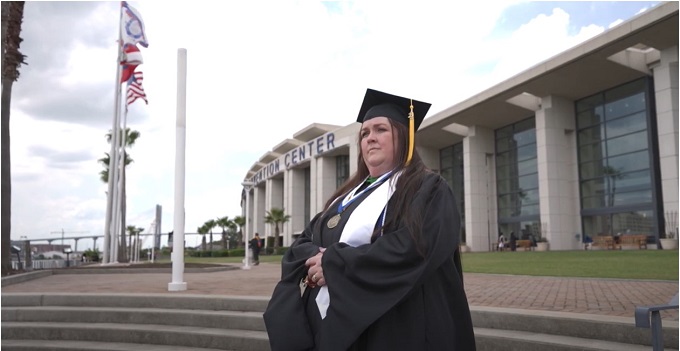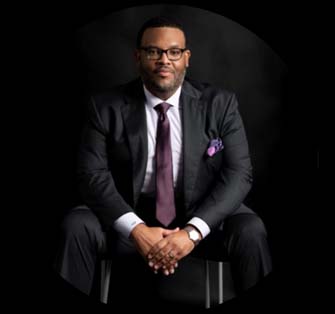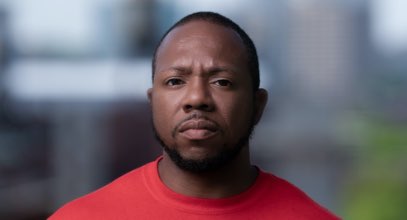Clinical Mental Health Counseling

Request Information
Master of Arts in Clinical Mental Health Counseling

There are many individuals who need the care and guidance of a counselor to support them through hard times and to challenge unhelpful thought patterns. With a Master of Arts in Clinical Mental Health Counseling from South University, you can learn to become a compassionate, professional counselor to help those in need. The coursework for the master’s in counseling degree program focuses on learning through experience, and comprehensive studies of theories and principles, dynamic applications in the field, training in effective assessment and treatment practices, a thorough understanding of the significance of research in the field and competence in ethical, legal, and professional standards.
The Master of Arts in Clinical Mental Health Counseling is designed to prepare graduates to sit for licensure in their state and the opportunity to become certified as a National Certified Counselor by the National Board for Certified Counselors*.
*Graduates are required to pass the national certification exam and obtain a state license in order to work in the field. (Exam names vary by program.) Please refer to the State Professional Licensure Determination and National Certification/Licensure section of the University catalog for additional information. South University cannot guarantee each graduate will pass the required licensure examinations. South University does not promise or guarantee licensure, employment or salary amounts.
South University, Richmond, and South University, Virginia Beach, are certified to operate in the Commonwealth of Virginia pursuant to Title 23, Chapter 21.1, §23-276.4 of the Code of Virginia by the State Council of Higher Education for Virginia (James Monroe Building, 101 North 14th St; Richmond, VA 23219; 804-225-2600; www.schev.edu).
Council for Accreditation of Counseling and Related Educational Programs
The Master of Arts (MA), Clinical Mental Health Counseling degree program at South University is accredited by the Council for Accreditation of Counseling and Related Educational Programs (CACREP), (Council for Accreditation of Counseling and Related Educational Programs, 1001 North Fairfax Street, Suite 510, Alexandria, VA 22314, phone (703) 535-5990.)
Admission Requirements
Procedure for Admission to the Master of Arts in Clinical Mental Health Counseling Program
Admissions criteria for the Master of Arts in Clinical Mental Health Counseling program are consistent with those required in other master's degree level programs at South University. As the admissions process also takes into consideration the characteristics deemed essential to becoming a clinical mental health counselor, material is also required which will enable a determination to be made of the applicant's personal integrity, maturity, interpersonal skills, and ability to communicate effectively. The criteria used in determining admission to the graduate program include:
- Completion of a bachelor's degree from an accredited institution.
- A grade point average of at least 2.3 (on an Admissions scale of 4.0) for the last 60 semester hours/90 quarter hours of coursework (including relevant graduate work), or, a bachelor's degree with an overall CGPA of 2.3, or, an earned graduate degree from an accredited institution with a CGPA of 3.0 or higher.
- A minimum score on a South University preapproved English language proficiency test is required for all applicants whose "first" language is not English as specified in the English Language Proficiency Policy.
- Interview with the Clinical Mental Health Counseling department chair/program director or designated faculty member.
- Approval of the campus program admissions committee.
- Completion of an application for admission.
- Submission of a personal/professional statement addressing the applicant's interest in counseling, professional goals, along with a self-appraisal of academic and professional qualifications.
- Submission (within 5 weeks of class start dates) of official transcripts from all postsecondary institutions attended (refer to Conditional Acceptance).
- Current résumé (or career summary).
- Background Check
All required admissions documentation and criteria will be reviewed and evaluated. Applicants will be notified regarding acceptance. Applicants should review the published general graduate requirements listed in the South University catalog. Students who are citizens of countries other than the United States should also refer to the section in the South University catalog entitled International Student Admissions Policy.
For additional admissions information please see the admissions section here.
Program Course Requirements
Curriculum for Columbia, Richmond, and Savannah campuses only
Curriculum for Columbia; Richmond; Savannah and Virginia Beach campuses only
Mission, Goals & Outcomes
Upon completion of the program, students will be able to:
- Analyze historical and current testing and assessment methods for implementing ethical and accurate appraisal of diverse clients by individual or group methods.
- Plan, implement, and evaluate evidence-based programs and counseling approaches that are designed to treat psychopathology and promote optimal mental health.
- Apply the major theories of change, consultation practices, diagnostic impressions, and evidence-based interventions to a diverse clientele for the delivery of effective and ethical treatment.
- Apply culturally appropriate group skills, techniques, and theory-based interventions in the context of group counseling dynamics while exploring effective facilitation styles.
- Apply research and core theory to the needs of diverse individuals across the lifespan, to include atypical personality and neurological development, addictive disorders, family and social relationships, and crisis response.
- Demonstrate implementation of research and core theory related to the processes of decision-making in career development and planning in the context of the psychology of work.
- Apply aspects of professional functioning to include ethical standards, legal implications, advocacy and social justice, counselor roles, and professional credentialing.
- Apply needs assessment, program evaluation, and research methods to ethical and effective practice and to add to the body of literature in the counseling profession.
- Demonstrate the ability to apply multicultural research and core theory to issues and relationships in the context of culturally competent counseling.
Master of Arts in Clinical Mental Health Counseling at South University, Richmond
Core Faculty
Richmond Campus Core Faculty

Faye Barner is a licensed professional counselor, licensed substance abuse treatment practitioner, and certified sex offender treatment provider. Dr. Barner has worked in the mental health field for over 20 years in both private and community-based settings. Her passions include working with and securing funding for disadvantage population programming as well as developing and implementing adolescent mentoring programs. She is also a professor in Counselor Education and Supervision. She serves as a mentor and clinical supervisor to a host of students and residents in counseling. Her specialty areas are working with adolescence substance use, sex offenders, and domestic violence survivors. Dr. Barner also provides workshops on mental health and substance use. Dr. Barner received her Doctor of Philosophy from Regent University in Counselor Education and Supervision.

Carlton J. Henderson completed his undergraduate and doctoral studies at the prestigious Hampton University. Prior to beginning the doctoral program, he engaged in graduate study at the Virginia State University. His primary research interests include Black male identity development and mentoring.
Dr. Henderson’s professional experience is in community agency counseling, particularly working with underserved and minoritized youth and families. Dr. Henderson also has experience in state government through his work in human rights advocacy for those with mental and behavioral health needs.
Having realized the lack of Black male clinical representation in the counseling profession, Dr. Henderson began licensure supervision as a Resident in Counseling. He currently provides outpatient counseling services to adults and couples.
Career Outlook
These are some of the career options* you can explore when you have earned your degree:
- Mental Health Counselor
*South University does not promise or guarantee licensure, employment, or salary amounts.
Graduates are required to pass the national certification exam and obtain a state license in order to work in the field. (Exam names vary by program.) Please refer to the State Professional Licensure Determination and National Certification/Licensure section of the University catalog for additional information. South University cannot guarantee each graduate will pass the required licensure examinations. South University does not promise or guarantee licensure, employment or salary amounts.
CMHC Program Guide
The Clinical Mental Health Counseling Program Guide contains information specific to students enrolled in the Master of Arts in Clinical Mental Health Counseling program at South University. It is the responsibility of all students to be knowledgeable about the policies, procedures, regulations and expectations contained within. If at any time there is a conflict between the Program Guide and the Academic Catalog, the Academic Catalog will take precedence.
This Guidebook has been prepared by the CMHC program. Information in it maybe be modified, supplemented or discontinued with or without notice.
To view the South University, Richmond Master of Arts in Clinical Mental Health Counseling (CMHC) Program Guide, click HERE.
Sample Syllabi
Master of Arts in Clinical Mental Health Counseling Course Syllabi Samples
The syllabi listed below represent the courses in the Clinical Mental Health Counseling Program. They are provided for informational purposes only and should not be interpreted as the “official” syllabus for the course.
CNS6051, Diagnostics of Psychopathology and Treatment
CNS6161, Counseling Techniques
CNS6313, Professional Orientation and Ethics
CNS6425, Clinical Mental Health Counseling
CNS6529, Research and Statistical Evaluation
CNS6535, Clinical Mental Health Appraisal I
CNS6565, Multicultural Foundations
CNS6602, Lifestyle and Career Development
CNS6709, Couples, Marital, and Family Dynamics
CNS6775, Counseling Administration, Advocacy, Supervision and Policy
CNS6901, Diagnosis and Treatment of Addictive Disorders
CNS7510, CNS7610, CNS7611, Internship IA, Internship IIA, Internship IIB
CNS7950, Child/Adolescent Psychopathology and Treatment
What's New
Latest News and Blogs

Feb 24, 2026
The Growing Need for Mental Health Counselors
Learn why the need for mental health counselors is growing, how high the demand is, and the types of valuable services they provide to clients.

Feb 18, 2026
PTA Alumni Spotlight: Veteran Leads Home Health Agency
See how South University helped US military veteran Waddie Freeman grow his career in healthcare, from becoming a PTA to running a home health agency.

Feb 17, 2026
The Future of Home Care: Trends and Predictions
Learn what home care trends are driving growth in home health care, including an aging population, new technology, and evolving payment models.

Feb 10, 2026
Popular Degrees for Veterans
Learn what degrees are a common choice for veterans as they set out to achieve their goals and transition smoothly from military member to civilian.

Feb 10, 2026
Assistant Dean Helps Patient Receive Treatment
Karen M. Wilcox, the Assistant Dean of the graduate programs, used her expertise to help one of her patients detect and receive treatment for cancer.

Feb 04, 2026
MSN Alumni Spotlight: From CNA to FNP
Meet South University graduate Charlene Coates and learn how she went from being a certified nursing assistant to becoming a family nurse practitioner.
Fill out the form and a representative will contact you today to better understand your academic goals plus answer any questions you may have.
Campuses offer flexible learning formats* including: on-campus, virtual instructions, and online courses.
*Clinical, practicum, and externship requirements exist in certain programs and require field experiences. Learning formats may not be flexible.
Success! Your request was submitted. We'll be in touch soon!
In the meantime, you can view some of our FAQs.
If you want to talk to an admissions representative ASAP, please contact us at (888) 444-3404.
Outstanding Education for Remarkable Careers
We're committed to helping our graduates make an impact in their professional and personal lives. We applaud our alumni and the difference they make. Check out what some of our counseling and psychology graduates have to say.





